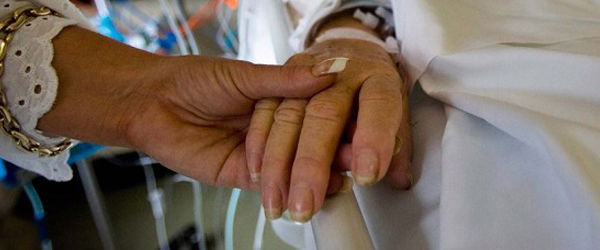Jorge Mario Bergoglio was born Dec. 17, 1936, in Buenos Aires. He grew up in Barrio de Flores, a working-class neighborhood. His father was a railway worker, his mother a homemaker. As a youth, the pope studied in public schools and in high school obtained a technical certification as a chemist.From a young age, he knew he would become a priest. Amalia Damonte, who grew up in the pope's neighborhood, reportedly was briefly the object of his affections. Damonte, who still lives in the same neighborhood, has said in interviews that when they were 12, Pope Francis said that, if he could not marry her, he would become a priest.When the pope was 21, he became gravely ill with severe pneumonia and had his right lung partially removed. The Vatican spokesman, Jesuit Father Federico Lombardi, has confirmed this, noting that it is "not a handicap" in the pope's life.In 1958, Pope Francis entered the novitiate of the Society of Jesus, and two years later he took his first vows as a Jesuit. In 1963, on returning to Buenos Aires, he studied philosophy at San Miguel Seminary.Between 1964 and 1965, he taught literature and psychology at a Jesuit secondary school in Santa Fe, Argentina, and in 1966, he taught at the prestigious Colegio del Salvador secondary school in Buenos Aires.In 1967, he returned to his theological studies and was ordained a priest Dec. 13, 1969. After his perpetual profession as a Jesuit in 1973, he became master of novices at San Miguel. Later that same year, he was elected superior of the Jesuit province of Argentina and Uruguay. Some controversy had arisen over the position taken by Pope Francis during Argentina's 1976-1983 military dictatorship, which cracked down brutally on political opponents. Estimates of the number of people killed and forcibly disappeared during those years range from about 13,000 to more than 30,000. Citing a case in which two young Jesuits were detained by the military regime, critics say that the Jesuit provincial did not do enough to support church workers against the military dictatorship.The Vatican has dismissed claims that Pope Francis played a direct role in the kidnappings of the two Jesuits and described them as part of a campaign by "left-wing anti-clerical elements to attack the church."From 1979 to 1985, Pope Francis served as rector and theology teacher at Colegio Maximo, before heading to Germany to finalize his doctoral thesis. In May 1992, he was appointed auxiliary bishop of Buenos Aires. He was one of three auxiliaries and he kept a low profile, spending most of his time caring for the Catholic university, counseling priests and preaching and hearing confessions. On June 3, 1997, he was named coadjutor archbishop. He was installed as the new archbishop of Buenos Aires Feb. 28, 1998. As archbishop, he was known simply as "Father Jorge," and he adopted the attitude that the church belongs in the street. He built chapels and missions in poor areas and sent seminarians to serve them.He spoke out often against injustice, such as the treatment of migrant workers from neighboring countries and those lured into the sex trade, and against social issues such as abortion and same-sex marriage. In 2001, he was elevated to cardinal, and later that year he served as an official of the Synod of Bishops at the Vatican. Press reports indicate that in the 2005 conclave that elected Pope Benedict XVI, Cardinal Bergoglio received the second-highest number of votes. That same year, he began a six-year term as head of the Argentine bishops' conference.—CNS{gallery width=100 height=100}gallery/2013/0322/francistext/{/gallery}

